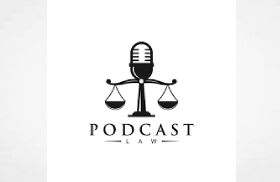Source: Mondaq – https://www.mondaq.com/unitedstates/trademark/1447868/sound-legal-navigating-the-legal-landscape-of-podcasting
Much like any creative pursuit, podcasting comes with its own set of legal intricacies. Before you press record, it’s essential to grasp the legal framework that forms the foundation of every episode. From safeguarding intellectual property to negotiating clear agreements with guests and fellow hosts, navigating the legal landscape is important in the increasingly popular field of podcasting.
Intellectual Property
There are various intellectual property considerations when launching a podcast. On one hand, podcast hosts must tread carefully to avoid infringing upon the rights of others when incorporating music or artwork into their episodes. On the other hand, creators should be proactive in safeguarding their own intellectual property.
Do You Need Permission To Use Music Or Art On Your Podcast?
Podcasters must be aware that incorporating someone else’s music into their show without proper authorization can lead to copyright infringement issues. Copyright law protects musical compositions and recordings, meaning that unauthorized use of music without obtaining the necessary permissions could result in legal consequences, such as takedown notices, fines, or even lawsuits.
Similarly, utilizing artwork or visual elements in a podcast without the appropriate permissions can also land podcasters in legal trouble. Whether its album cover art, illustrations, photographs, or any other visual content not created by the podcaster themselves, obtaining permission from the copyright holder is crucial to avoid potential copyright infringement claims.
Therefore, it’s important for podcasters to exercise caution and diligence when selecting music or artwork for their shows. This often involves either obtaining direct permission from the copyright holders or utilizing content that is explicitly labeled for free or available to license for use. Taking these steps not only ensures legal compliance but also fosters a respectful and ethical approach to content creation within the podcasting community.
Should You Seek Trademark Registration For Your Podcast Title?
When podcasters craft their brand identity, including their name, logo, or slogan, it is important to consider the legal protection afforded by trademark registration. Registering a trademark provides podcasters with certain rights and legal recourse against unauthorized use or infringement, including preventing others from using similar marks that could cause confusion among listeners or dilute the brand’s identity.
One important step in this process is to conduct a search on the United States Patent and Trademark Office (USPTO) database to ensure that the chosen name or logo is not already registered by another entity. This proactive approach helps mitigate potential conflicts and legal disputes down the road.
Even if a podcast is in its early stages, registering your trademark early on is a wise investment in its future success. While it may seem unnecessary for smaller podcasts with limited resources or audience reach, there are many benefits to trademark registration. Notably, without proper registration, podcasters may find themselves without legal recourse in the event of infringement or unauthorized use of their intellectual property.
Contracts
When launching a podcast, having clear and comprehensive agreements is crucial for smooth operations and protecting everyone involved. Some agreements that podcasters should consider include:
- Guest Agreements
It’s important for podcasters to establish formal contracts with guests appearing on their show. These agreements outline the terms and conditions to which the guest consents by participating in the podcast. From usage rights of their likeness and content to confidentiality clauses, clarity here is key to avoiding any misunderstandings down the line.
- Co-Host Agreements
When there are multiple hosts involved, a co-host agreement becomes indispensable. This document outlines provisions such as ownership rights, revenue sharing arrangements, and what happens if one host decides to part ways. Establishing these terms upfront fosters transparency and prevents potential conflicts in the future.
- Editor Agreements
For podcasts employing editors, a formal agreement with clear terms is paramount. This contract should outline expectations regarding the editor’s deliverables, deadlines, payment structures, and intellectual property ownership, including whether their services are works made for hire. Clarity on these aspects ensures that both parties are aligned, and that the podcast’s editing process runs smoothly.
- Sponsor Agreements
Securing sponsorships is a significant component of podcast monetization, and formal sponsor agreements are essential. Similar to editor agreements, these contracts cover aspects such as deliverables, payment terms, and the scope of publicity provided in exchange for sponsorship funds. Clear communication and delineation of responsibilities are crucial for fostering successful partnerships with sponsors, and professionally navigating disputes if and when they arise.
- Network Agreements:
In cases where podcasts are affiliated with a network or owned by another entity, podcasters must safeguard their content and interests. Network agreements should include provisions ensuring that the owner/network cannot alter or utilize the podcast’s content without proper compensation or consent. Protecting the integrity and ownership of the podcast’s content is vital for maintaining creative control and preserving the podcast’s identity.
Other Legal Considerations When Launching Your Podcast
Form an LLC
Forming a Limited Liability Company (LLC) offers several advantages for podcasters. One of the primary benefits is that an LLC provides limited liability protection. This means that the personal assets of the podcasters, such as their homes or savings accounts, are generally protected from lawsuits or debts incurred by the business. If the podcast were to face legal issues or financial liabilities, the liability would typically be limited to the assets of the LLC. LLCs also allow for flexibility in ownership and management structure, which can be customized to suit nontraditional business operations like podcasting operations.
Disclaimers/Disclosures
Podcasters have a responsibility to ensure transparency and integrity in their content, which often involves including appropriate disclaimers and disclosures. These statements not only protect the podcasters from potential legal liabilities but also help build trust with their audience by setting clear expectations.
One type of disclosure may be the hosts clarifying their level of expertise on a particular topic. This disclaimer should explicitly state that the hosts are providing general advice, or opinions based on their personal experiences and research, rather that offering professional advice. Further, podcasters should also clarify that the opinions expressed on the podcast are those of the hosts or guests and do not necessarily reflect the views of any affiliated organizations or sponsors.
Another type of disclosure are affiliate disclosures. If the podcast includes endorsements for products or services in exchange for compensation or commission, it’s necessary to disclose this relationship to the audience. Similarly, if the podcast features sponsored content or partnerships with companies, it must be disclosed to the audience.
Defamation
Podcasters must exercise discretion in their discussions and refrain from disseminating false statements that could damage the reputation of individuals or entities. Defamation, comprising both libel (written defamation) and slander (spoken defamation), presents a substantial legal hazard for podcasters. Remarks made on air possess the potential to reach a wide audience and be available to the public indefinitely. Furthermore, even opinions voiced on podcasts may lead to defamation allegations if they are portrayed as factual assertions or lack a reasonable foundation. Acquiring a comprehensive understanding of defamation law, maintaining stringent fact-checking protocols, and seeking legal advice when broaching delicate subjects can aid podcasters in mitigating the risk of defamation claims.
Conclusion
Launching a podcast requires an awareness of the legal considerations that underpin every aspect of the venture. By prioritizing legal compliance, transparency, and integrity, podcasters can pave the way for a successful and sustainable audio storytelling. Podcasters should proactively monitor and adapt to the industry’s evolving landscape, both to avoid being surprised by changing advertising regulations or to seize new opportunities before they become stale.
The content of this article is intended to provide a general guide to the subject matter. Specialist advice should be sought about your specific circumstances.





